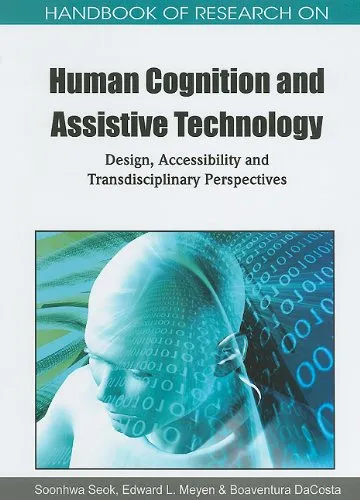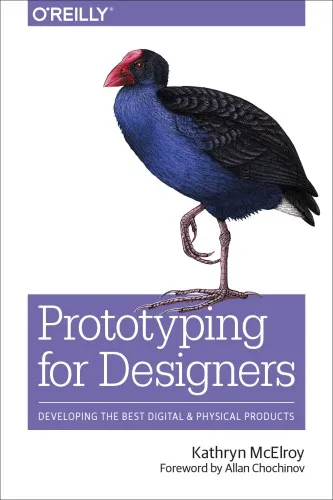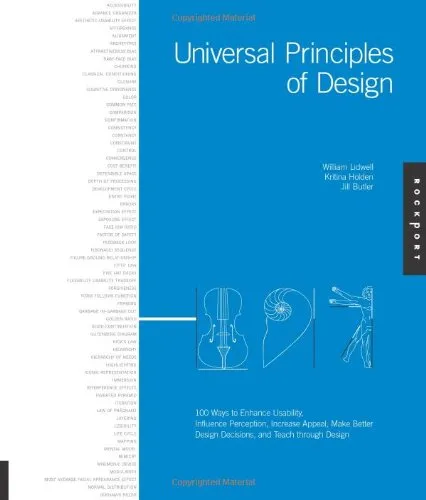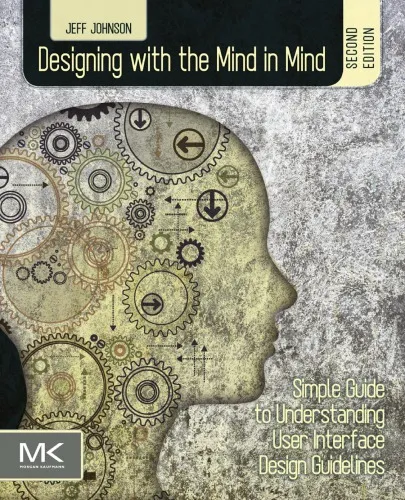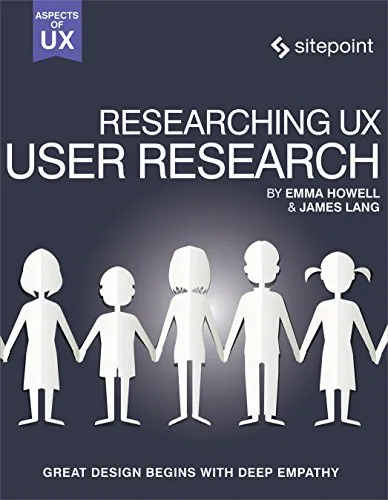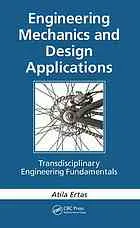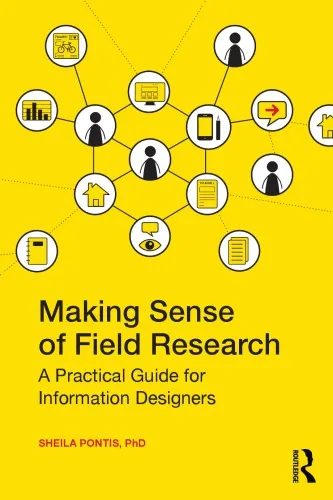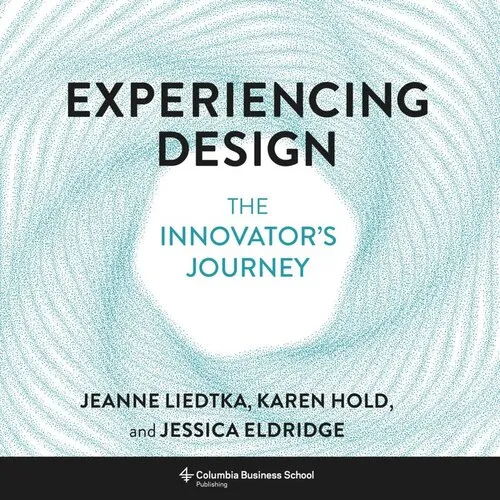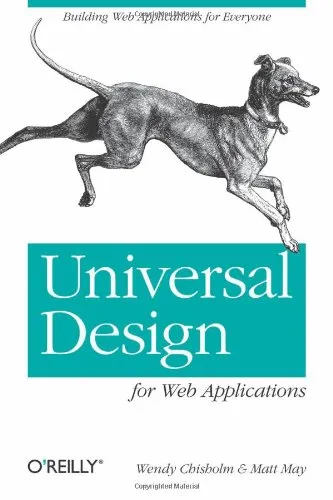Handbook of Research on Human Cognition and Assistive Technology: Design, Accessibility and Transdisciplinary Perspectives (Handbook of Research On...)
4.3
بر اساس نظر کاربران

شما میتونید سوالاتتون در باره کتاب رو از هوش مصنوعیش بعد از ورود بپرسید
هر دانلود یا پرسش از هوش مصنوعی 2 امتیاز لازم دارد، برای بدست آوردن امتیاز رایگان، به صفحه ی راهنمای امتیازات سر بزنید و یک سری کار ارزشمند انجام بدینکتاب های مرتبط:
مقدمهای بر کتاب
کتاب "Handbook of Research on Human Cognition and Assistive Technology: Design, Accessibility and Transdisciplinary Perspectives" یا به اختصار "Handbook of Research On..." به عنوان مجموعهای جامع از تحقیقات در حوزه شناخت انسان و فناوریهای کمکی ارائه شده است. این کتاب به بررسی طراحی، کاربردپذیری و دیدگاههای میانرشتهای در استفاده از فناوریهای کمکی برای بهبود قابلیتها و تواناییهای انسان میپردازد.
خلاصهای از کتاب
در جهانی که فناوری روز به روز در حال پیشرفت است، فهم چگونگی تعامل انسان و تکنولوژی برای طراحان، پژوهشگران و متخصصان در زمینه فناوریهای کمکی بسیار مهم است. این کتاب به نوعی پل اتصال میان تئوریهای شناختی و کاربردهای عملی در زمینه فناوریهای کمکرسان میباشد. با تمرکز بر چالشها و فرصتهای موجود در طراحی و کاربردپذیری این فناوریها، مباحث متعددی را از زوایای مختلف بررسی میکند، از جمله تاثیرات شناختی استفاده از فناوریهای کمکی و راهکارهای بهینهسازی این تعاملات.
نکات کلیدی
- فهم عمیقتر از نقش شناخت انسان در طراحی فناوریهای کمکی.
- رویکردهای میانرشتهای برای بهبود کاربردپذیری فناوریهای کمکی.
- مطالعه دقیق و جامع در زمینه طراحی و توسعه فناوریهای کمکی با توجه به نیازمندیهای کاربران.
نقلقولهای معروف از کتاب
"فناوریهای کمکی میتوانند به پلهایی تبدیل شوند که فاصله میان محدودیتها و امکانات را از بین ببرند."
"شناخت انسان به عنوان قلب تپنده فناوریهای کمکرسان میباشد و باید در تمامی فرآیندهای طراحی و توسعه اولویت داده شود."
اهمیت این کتاب
این کتاب به عنوان یک منبع ارزشمند برای محققان و متخصصانی که به دنبال بهبود تجربه کاربران و افزایش دسترسیپذیری فناوریها هستند، عرضه شده است. با ارائه تحقیقات بینرشتهای و مطالعات موردی، این کتاب به فهم بهتر از چگونگی طراحی سیستمهای کاربر محور و استفاده از فناوریهای کمکی کمک میکند. این مطالب برای طراحان، مهندسان و توسعهدهندگان نسخههای دیجیتال و اینترکتیو خصوصاً در کارهای روزمره بسیار سودمند است.
Introduction
Welcome to the world of cognitive science and assistive technology, where groundbreaking research intersects with practical applications to enhance human capabilities.
In the digital age, the integration of technology into our daily lives has become both inevitable and essential. The "Handbook of Research on Human Cognition and Assistive Technology: Design, Accessibility and Transdisciplinary Perspectives" delves into the profound ways that assistive technologies can reshape how individuals interact with the world. This comprehensive handbook sets forth a plethora of research findings that are crucial for understanding how assistive technologies can be leveraged to support human cognition.
Summary of the Book
The handbook is a compendium of research and scholarly perspectives on the dynamic interaction between human cognition and assistive technologies. It emphasizes design and accessibility while integrating transdisciplinary approaches. Spanning an array of topics from cognitive neuroscience to human-computer interaction, this book provides insights into how assistive technology can aid those with cognitive impairments.
With contributions from renowned experts across various fields, the handbook explores essential themes such as the principles of cognitive design, usability in assistive technology, and the psychological impact of technological devices on cognitive processes. It also delves into innovative designs that promote universal accessibility, ensuring that assistive technologies meet the needs of a diverse user base.
By focusing on transdisciplinary perspectives, the book demonstrates how cross-collaboration among disciplines such as psychology, engineering, and computer science is vital to developing effective assistive tools. It provides a roadmap for future research and development, offering practical examples and theoretical frameworks that are pivotal to advancing assistive technologies.
Key Takeaways
- The fusion of cognitive science with technological innovation is crucial to developing assistive technology that is both effective and user-friendly.
- Design principles rooted in cognitive comprehension can significantly enhance the usability of technological aids for individuals with diverse needs.
- Transdisciplinary collaboration is imperative for fostering innovation in assistive technology research and development.
- Accessibility must be at the forefront of technology design to ensure inclusivity and maximize potential user benefits.
Famous Quotes from the Book
"Understanding human cognition is not just about identifying limitations; it's about unlocking potential through innovative technology."
"Assistive technologies should not only accommodate disabilities but also inspire possibilities."
Why This Book Matters
The "Handbook of Research on Human Cognition and Assistive Technology" is a pivotal resource in an era where technology continuously reshapes the landscape of human capacity. As assistive technologies become more ingrained in educational, professional, and personal domains, understanding their impact on cognitive processes is crucial. Whether you are a researcher, practitioner, or policymaker, this book offers the essential knowledge needed to harness technology for cognitive amplification.
The emphasis on accessibility and design makes it a critical text for ensuring that technological advances are equitable and inclusive. By consolidating what is known about the interaction between human cognition and assistive technology, this handbook serves as a foundation for future innovations that can drive social change and improve the quality of life for individuals worldwide.
دانلود رایگان مستقیم
شما میتونید سوالاتتون در باره کتاب رو از هوش مصنوعیش بعد از ورود بپرسید
دسترسی به کتابها از طریق پلتفرمهای قانونی و کتابخانههای عمومی نه تنها از حقوق نویسندگان و ناشران حمایت میکند، بلکه به پایداری فرهنگ کتابخوانی نیز کمک میرساند. پیش از دانلود، لحظهای به بررسی این گزینهها فکر کنید.
این کتاب رو در پلتفرم های دیگه ببینید
WorldCat به شما کمک میکنه تا کتاب ها رو در کتابخانه های سراسر دنیا پیدا کنید
امتیازها، نظرات تخصصی و صحبت ها درباره کتاب را در Goodreads ببینید
کتابهای کمیاب یا دست دوم را در AbeBooks پیدا کنید و بخرید
1302
بازدید4.3
امتیاز0
نظر98%
رضایتنظرات:
4.3
بر اساس 0 نظر کاربران
Questions & Answers
Ask questions about this book or help others by answering
No questions yet. Be the first to ask!
